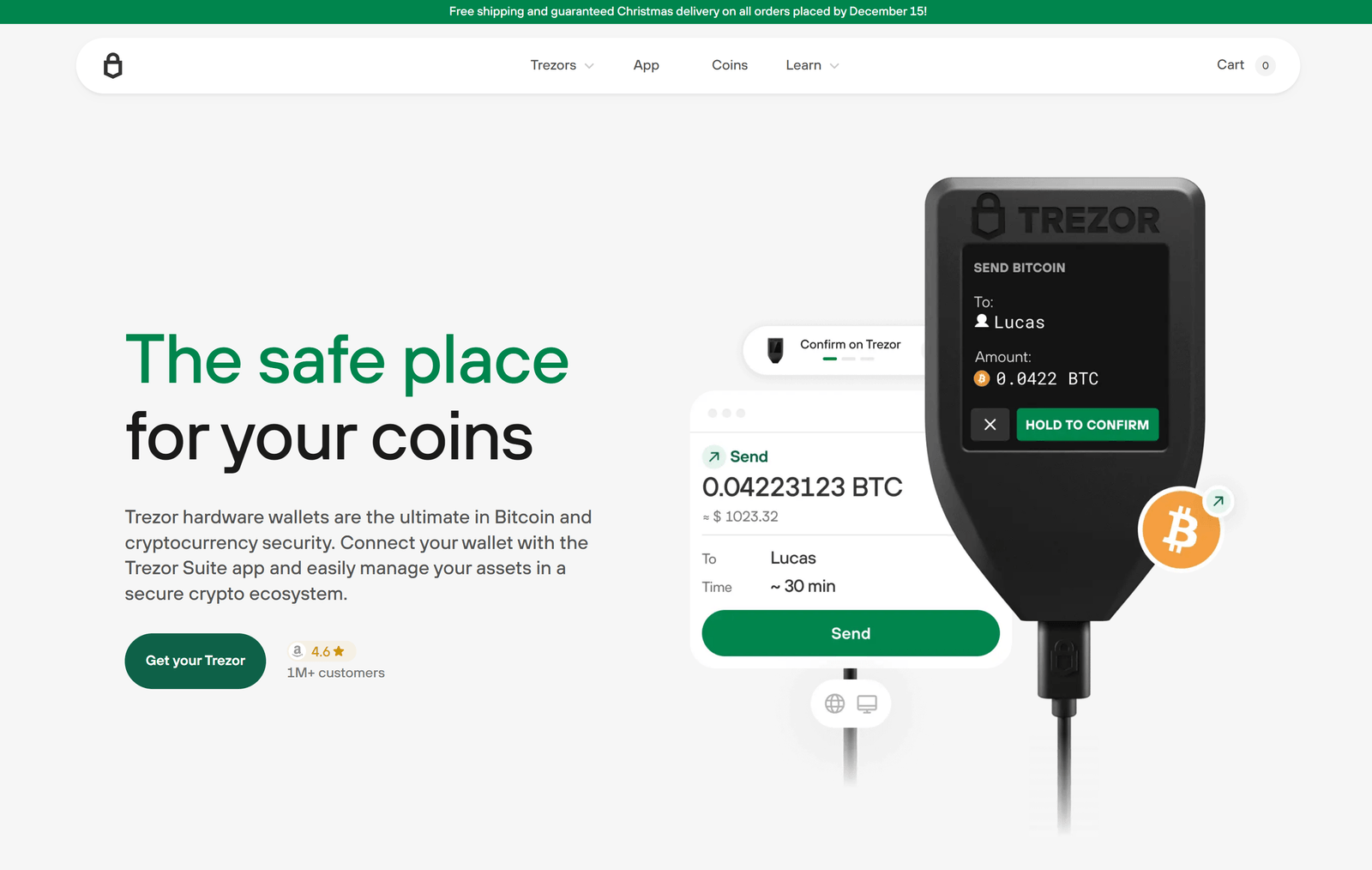Trezor.io/Start: The Complete Guide to Setting Up Your Trezor Wallet
In the rapidly growing world of cryptocurrencies, security is more critical than ever. With millions of dollars lost every year due to online hacks, phishing attacks, and digital theft, hardware wallets have emerged as the most trusted method to protect digital assets. Trezor, one of the pioneers in crypto hardware wallets, provides an ironclad solution to securing your crypto portfolio. If you’ve recently purchased a Trezor device, your first stop should be Trezor.io/start, the official onboarding page to begin your secure journey. This article serves as a complete, step-by-step guide for navigating Trezor.io/start, helping both beginners and experienced users establish a solid security foundation.
What is Trezor.io/Start?
Trezor.io/start is the official initialization page for all Trezor hardware wallet devices, including the Trezor Model One and Trezor Model T. This page is designed to guide users through the process of setting up their wallet, downloading the required software, and creating a secure recovery seed. It ensures you’re using authentic Trezor services and protects you from malicious third-party platforms pretending to be affiliated with Trezor.
Whether you're setting up a new wallet, restoring an old one, or simply updating your device firmware, Trezor.io/start is the authoritative resource to follow.
Why Start With Trezor.io/Start?
There are multiple reasons why every Trezor user should begin their wallet setup at Trezor.io/start:
- Security Assurance: Direct access to official software and updates eliminates the risk of downloading malware or counterfeit apps.
- User Guidance: Step-by-step, easy-to-follow instructions are provided for every stage of the process.
- Firmware Updates: Ensures that your device has the latest firmware to protect against known vulnerabilities.
- Support Resources: Access to FAQs, troubleshooting guides, and the official support team in case of issues.
Step-by-Step Guide to Setting Up Trezor via Trezor.io/Start
Step 1: Connect Your Device
Visit Trezor.io/start and connect your Trezor hardware wallet to your computer using the provided USB cable. You’ll be prompted to choose your device model (Trezor Model One or Model T).
Step 2: Install Trezor Suite
The next step is downloading and installing Trezor Suite, the official desktop app that allows you to manage your cryptocurrencies, monitor your portfolio, send/receive assets, and more. Trezor Suite is compatible with Windows, macOS, and Linux operating systems.
Once installed, open the Suite and follow the on-screen instructions to initialize your device.
Step 3: Firmware Installation
If your device is brand new, it will likely prompt you to install the latest firmware. Trezor devices are shipped without firmware for security reasons. Click “Install firmware” and wait for the process to complete. This ensures that your device is protected by the latest security protocols.
Step 4: Create a New Wallet
After installing the firmware, you’ll be given the option to create a new wallet. Click on the “Create wallet” button. The device will generate a 12-word or 24-word recovery seed, which is the most critical component of your crypto security.
Important: Write this recovery seed down on paper and store it in a safe, offline location. Never share it online, photograph it, or store it digitally.
Step 5: Verify and Confirm
Your device will ask you to verify a few of the seed words to ensure you’ve backed it up correctly. This step is non-negotiable—it ensures you’ll be able to recover your assets if the device is lost, damaged, or stolen.
Step 6: Set Up a PIN
For an extra layer of security, set a unique PIN code for your Trezor wallet. This PIN will be required every time you connect the device, preventing unauthorized access even if someone physically possesses your wallet.
What Can You Do After Setup?
Once your wallet is initialized, you’ll have access to the full suite of Trezor functionalities:
- Send and Receive Crypto: Easily send or receive Bitcoin, Ethereum, Litecoin, and hundreds of other supported coins.
- Portfolio Management: Monitor balances and track portfolio performance directly within Trezor Suite.
- Exchange Integration: Swap crypto assets securely via built-in exchange services like Changelly and Coinify.
- Custom Labeling: Organize your wallets and accounts with custom labels for better tracking.
- Advanced Security Settings: Enable passphrase protection for maximum wallet encryption.
Best Practices After Setting Up Trezor
- Keep Your Recovery Seed Offline: Never enter it into any website or app. Only use it on your physical Trezor device.
- Enable Hidden Wallets: Add a passphrase to create hidden wallets with unique encryption.
- Keep Software Updated: Regularly check for firmware and Suite updates to protect against new threats.
- Stay Aware of Phishing: Always double-check URLs and never trust unofficial apps or emails claiming to be from Trezor.
Final Thoughts
Setting up your Trezor hardware wallet through Trezor.io/start is the safest, most reliable method to begin your crypto security journey. The platform is designed with both beginners and experienced users in mind, ensuring that everyone can secure their digital assets without compromising usability. In just a few steps, Trezor empowers users with full control over their cryptocurrencies—completely offline, protected from online threats, and verified by open-source technology.
Made in Typedream